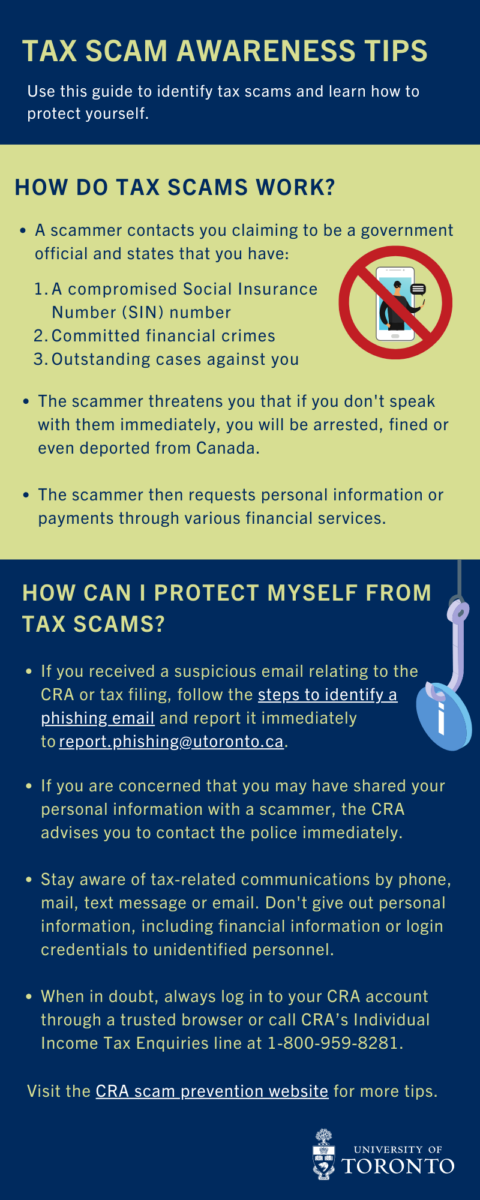Canadians lose millions of dollars in various scams and fraud every year, according to the Canadian Anti-Fraud Centre.
A tax-related scam is when a fraudster poses as an authority figure, usually as a CRA or Service Canada agent, to try to scare people into complying with their demands. These scams are designed to frighten people into engaging with the fraudster to make payments via money service businesses, pre‐paid cards, gift cards or Bitcoin.
Check out the infographic below to learn more about tax scams and how you can protect yourself and your loved ones.
Content of the infographic: Tax scam awareness tips
Use this guide to identify tax scams and learn how to protect yourself.
How do tax scams work?
- A scammer contacts you claiming to be a government official and states that you have:
- A compromised Social Insurance Number (SIN) number
- Committed financial crimes
- Outstanding cases against you
- The scammer threatens you that if you don’t speak with them immediately, you will be arrested, fined or even deported from Canada.
- The scammer then requests personal information or payments through various financial services.
How can I protect myself from tax scams
- If you received a suspicious email relating to the CRA or tax filing, follow the steps to identify a phishing email and report it immediately to report.phishing@utoronto.ca.
- If you are concerned that you may have shared your personal information with a scammer, the CRA advises you to contact the police immediately.
- Stay aware of tax-related communications by phone, mail, text message or email. Don’t give out personal information, including financial information or login credentials to unidentified personnel.
- When in doubt, always log in to your CRA account through a trusted browser or call CRA’s Individual Income Tax Enquiries line at 1-800-959-8281.
Visit the CRA scam prevention website for more tips.
View the infographic in higher-resolution.
Visit the Security Matters website to learn more about how to protect yourself online.
Additional resources

